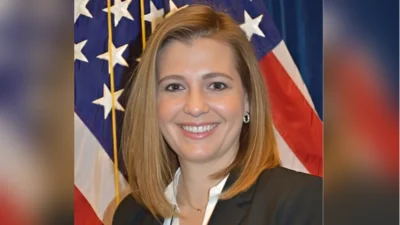U.S. Senator Josh Hawley | Official U.S. Senate headshot
U.S. Senator Josh Hawley | Official U.S. Senate headshot
U.S. Senators Josh Hawley from Missouri and Peter Welch of Vermont have introduced a bipartisan legislative proposal aimed at addressing corporate misconduct among major American businesses. The proposed legislation, named the Hold Corporate Criminals Accountable Act, seeks to empower the Department of Justice (DOJ) to take stronger actions against corporate wrongdoing.
Senator Hawley emphasized the need for this legislation by stating, "More and more big businesses are receiving a slap on the wrist by the DOJ for corporate misbehavior, allowing corporations to skirt litigation fees while incentivizing repeated offenses. This bipartisan legislation has the teeth to hold Corporate America accountable and would crack down on DOJ’s sweetheart deals."
Senator Welch also highlighted concerns over declining federal prosecution rates for white-collar crimes: "All wrongdoers should be held accountable for their actions—plain and simple. Yet federal prosecution of white-collar crimes has fallen to record lows in recent years, making it easier for ultra-wealthy executives to game the system and avoid responsibility when they hurt hardworking people. It’s also making it harder for the victims of corporate crimes to get justice, and that’s unacceptable." He further stated that "Our bipartisan bill will ensure a level playing field and provide needed accountability."
The bill is partly inspired by past incidents involving Boeing. In 2021, Boeing entered into a deferred prosecution agreement (DPA) with the DOJ after safety issues contributed to two airplane crashes. Following this agreement, Boeing was involved in another offense related to deceiving the Federal Aviation Administration about the safety of its 737 MAX aircraft. As part of its penalty, Boeing will pay approximately $250 million.
The proposed legislation aims to reform how DPAs are handled by raising standards before such agreements can be offered. Key provisions include requiring effective compliance monitoring for corporations under DPAs or probation, maintaining public access lists of these agreements by federal agencies, extending statutes of limitations for corporate offenses by five years, and redefining criteria for sentencing reductions based on substantial assistance in prosecuting individual offenders within corporations.
The full text of the bill is available for public review.



 Alerts Sign-up
Alerts Sign-up